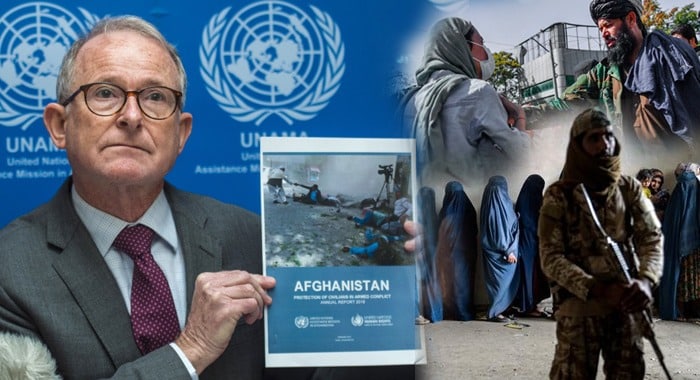The Taliban are systematically weaponizing Afghanistan’s justice system to suppress women and girls, potentially amounting to crimes against humanity, according to Richard Bennett, the United Nations Special Rapporteur on Human Rights in Afghanistan.
Speaking before the UN General Assembly on Wednesday, Bennett said the Taliban have dismantled all legal safeguards protecting women’s rights since taking control of the country. This includes suspending the Afghan constitution and repealing legislation that once upheld women’s legal protections.
Bennett revealed that all judges from the previous government, including 270 women, have been dismissed. In their place, the Taliban have appointed men with no legal training or judicial experience, who issue rulings based purely on the group’s strict and isolated interpretation of religion.
Now in complete control of law enforcement and judicial mechanisms, the Taliban have effectively eliminated access to impartial justice, particularly for women.
Bennett’s findings, detailed in a new report, draw on interviews with more than 110 Afghans inside and outside the country. The Taliban refused to respond to requests for comment or to provide details on how they ensure justice or protect women’s rights.
Though the Taliban claim to govern through Islamic Sharia, Bennett notes, and many scholars agree, that their version of Sharia is not accepted by any other Muslim-majority country and is at odds with fundamental Islamic principles.
The report states bluntly:
“Today, there are no women judges, prosecutors, or officially registered female lawyers in Afghanistan, leaving women and girls without safe or legitimate avenues to report abuse or seek justice.”
Further, the Taliban’s policy requiring women to be accompanied by a male guardian (mahram) when accessing any institution has made it nearly impossible for widows, displaced women, female heads of households, or women with disabilities to seek legal recourse or even appear in court.
Even when women do engage with the Taliban-controlled system; for filing complaints, requesting documentation, or defending themselves in legal matters, they are met with hostility and frequent case dismissals, the report added.
In desperation, many Afghan women are turning to traditional or informal justice systems such as jirgas, tribal elders, or religious figures. But these forums are overwhelmingly male-dominated and often reinforce gender discrimination rather than resolve it.
Bennett called on the international community to act, urging support for efforts to refer Afghanistan to the International Court of Justice for violations of the Convention on the Elimination of All Forms of Discrimination Against Women (CEDAW).
“What is happening in Afghanistan is not simply a rollback of rights, it is the erasure of women from public life under the guise of religion,” he warned.





